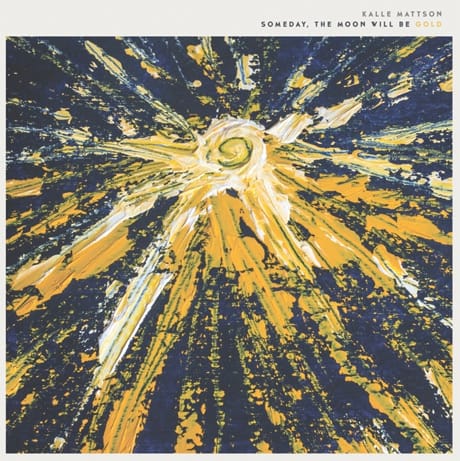Kalle Mattson's new full-length album is an intensely personal one. Someday, The Moon Will Be Gold documents the Sault Ste. Marie musician's gradual coming to terms with the death of his mother. The result is a stunning twelve-song elegy to the living and the dead.
Mattson bursts out of the gates with "An American Dream" and "Darkness," adventurous, emotional tracks offset by rolling percussion and upbeat horns. The album's earlier songs suggest that Mattson is still unsure how or what he feels, but he's seemingly settled by the introspective core of the record, which begins on the beautiful, slow-building "Eyes Speak," one of those songs that's designed to fade out but could go on forever. Catharsis comes in the form of "Pick Me Up" and "In the Morning Light," on which it's clear that Mattson's anger and loneliness have given way to hope, albeit incrementally: "We don't know just who we are / But we know what we don't want to be," he sings before reaching for his harmonica.
Mattson's voice and writing style are reminiscent of the great John K. Samson — in fact, "A Love Song to the City" may well be Mattson's Northern Ontario answer to the Weakerthans' "I Hate Winnipeg" — and his nervous energy and sonic texturing are as good as the best Josh Ritter effort. In the Wooden Sky's Gavin Gardiner, Mattson found the perfect producer for this record's every nostalgic nuance.
Mattson has crafted a beautiful tribute to the past and to moving on, and it's one that gets better with every listen.
(Parliament of Trees)Mattson bursts out of the gates with "An American Dream" and "Darkness," adventurous, emotional tracks offset by rolling percussion and upbeat horns. The album's earlier songs suggest that Mattson is still unsure how or what he feels, but he's seemingly settled by the introspective core of the record, which begins on the beautiful, slow-building "Eyes Speak," one of those songs that's designed to fade out but could go on forever. Catharsis comes in the form of "Pick Me Up" and "In the Morning Light," on which it's clear that Mattson's anger and loneliness have given way to hope, albeit incrementally: "We don't know just who we are / But we know what we don't want to be," he sings before reaching for his harmonica.
Mattson's voice and writing style are reminiscent of the great John K. Samson — in fact, "A Love Song to the City" may well be Mattson's Northern Ontario answer to the Weakerthans' "I Hate Winnipeg" — and his nervous energy and sonic texturing are as good as the best Josh Ritter effort. In the Wooden Sky's Gavin Gardiner, Mattson found the perfect producer for this record's every nostalgic nuance.
Mattson has crafted a beautiful tribute to the past and to moving on, and it's one that gets better with every listen.
